|
HIGHLIGHTS IN HISTORY
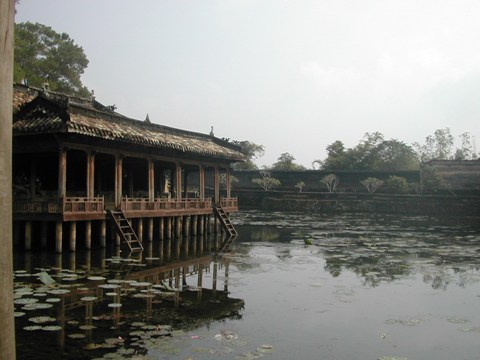
The Imperial city of Hué has several magnificient temples.
40 B.C.: The Trung sisters lead a rebellion against Chinese domination and score some spectacular victories in fierce battles with the imperial forces. They drown themselves in shame after a decisive defeat. Today they are still honored in Ha Noi and Ho Chi Minh City with main streets called 'Hai Ba Trung' - The Two Trung Ladies.
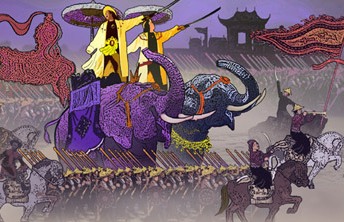
The Trung Sisters
967: King Din Bo Linh accedes the throne name his country Dai Co Viet.
1428: China recognizes Viet Nam's independence after a decade of war against Vietnamese forces headed by King Le Loi.
1847: French military forces land in Tourane (Da Nang) in central Viet Nam.
1862: Emperor Tu Duc signs a peace accord with France.
1890: Ho Chi Minh is born in Nghe An province
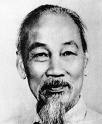
1930: Ho Chi Minh and fellow revolutionaries establish the Indochina Communist Party. The rebellion against French colonialism becomes more organised.
1940: Japanese forces occupy Viet Nam. Ho Chi Minh and his guerillas join the allied forces and get weapons and military training from The US Government Office of Strategic Services (Now called the CIA).
1945: Japan capitulates. On 2nd September (now Viet Nam's national day) Ho Chi Minh announces the independence of Viet Nam. The French regime is reinstated with the assistance of the allied powers. The second colonial war begins.
1954: The French forces lay down their arms after a humiliating defeat in the Dien Bien Phu valley. On a peace conference in Geneva Viet Nam is divided at the 17th parallel in Democratic Republic of Viet Nam and Republic of South Viet Nam.
1959: Guerilla forces in the south become increasingly active with support from Ha Noi. The first US military advisers arrive in Viet Nam.
1962: The U.S. establish formally the Military Assistance Command (MAC) in South Viet Nam.
1963: The war intensifies. South Viet Nam's president Ngo Dien Diem is killed in a military coup by his own generals, supported by the CIA.
1965: The first regular US army troops land in Da Nang.
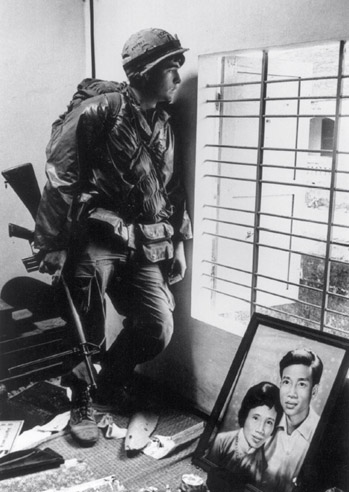
1968: Guerilla units supported by regular North Vietnamese forces initiate the Tet Offensive, attacking simultaneously in 104 locations in South Viet Nam. Peace negotiations commence in Paris.
1969: Ho Chi Minh dies at 79.
1973: The peace accord is signed. The US military forces are withdrawn, but soon armed confrontations start.
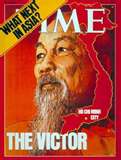
1975: (30 April) South Viet Nam's acting president, general Duong Van Minh hands over his powers to North Vietnamese forces entering Saigon.
1978: After repeated cross border skirmishes Viet Nam forces invade Cambodia and over throws Pol Pot's Khmer Rouge regime.
1979: China attacks Lang Son province northern Viet Nam "to teach Viet Nam a lesson". US led sanctions are introduced because of Viet Nam's military presence in Cambodia.
1986: Viet Nam initiates the extensive reform programme 'Doi Moi' (renovation).
1989: Peace accord in Cambodia. Viet Nam's troops are withdrawn, and international relations start to normalise.
1990: The reform process is gaining momentum, private sector enterprises emerge.
1994: US Trade embargo is lifted, and diplomatic relations are established between Ha Noi and Washington D.C.
1996: Viet Nam joins ASEAN.
1998: Viet Nam applies for membership of WTO.
2001: Viet Nam gets its first private enterprise law, paving the way for a surge of foreign direct investments.
2003: Viet Nam hosts ASEM V - with the participation of 35 heads of state from Asia and Europe.
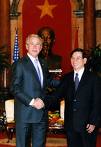
2006: Viet Nam hosts the APEC summit. US president George Bush makes an official visit to Viet Nam.
2007: Viet Nam joins the WTO.
2008: Former Prime Minister Vo Van Kiet dies at 81 - he was credited as one of the main players in Viet Nam's reform process.
Vietnam receives a record USD 60 Billion in Foreign Direct Investments, while struggling on the verge of hyper inflation.
2011: Vietnam elects new national leadership, with Nguyen Phu Trong as General Secretary of the Communist Party and Truong Tan Sang as President of SR Vietnam. Nguyen Tan Dung is elected for his 2nd term as Prime Minister. |